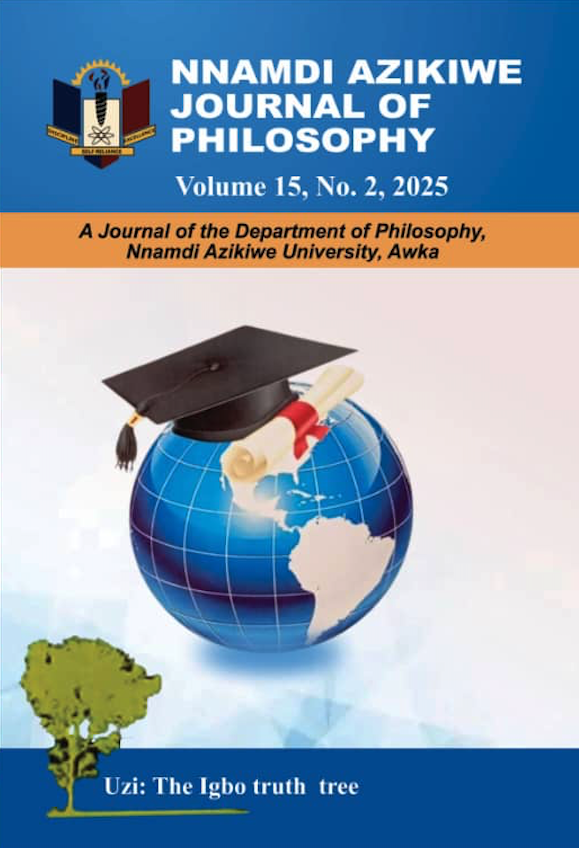Abuse of Will to Power in Nietzsche vis-à-vis Buber’s I-It Relation: A Critical Evaluation
Abstract
Abstract Human existence appears to be influenced by so many known factors, which two of these known factors include – Power and Human relationships. These two factors seem to be key factors in making the world a better place. However, the negative approach to the two known factors brings about the existence of a broken w orld, which cannot be denied. Human beings must accept the fact that this broken world is caused by human beings themselves. Majority, in ambition to dominate the world and be at the top or have people under their command; sees power as a means to an end. To achieve this end, people are used or manipulated which indirectly caused them unforgettable harm. This act of using or manipulating people is seen as a will to power in a negative or abusive manner; which also relates clearly to Martin Buber’s I-It postulation on human existence. This work argues that the use of human beings as means to an end in the matrix of power and human relationship remains a problem which results to the broken world. Using the analytical method (that is, the philosophical method of analysis), this work reveals that the existence of a broken world reflects in the abuse of will to power and seeing human beings as objects rather than as subjects. The work concludes that adopting Martin Buber’s idea of I-Thou postulation on human existence, the issue of a broken world will be solved and a better world achieved.


